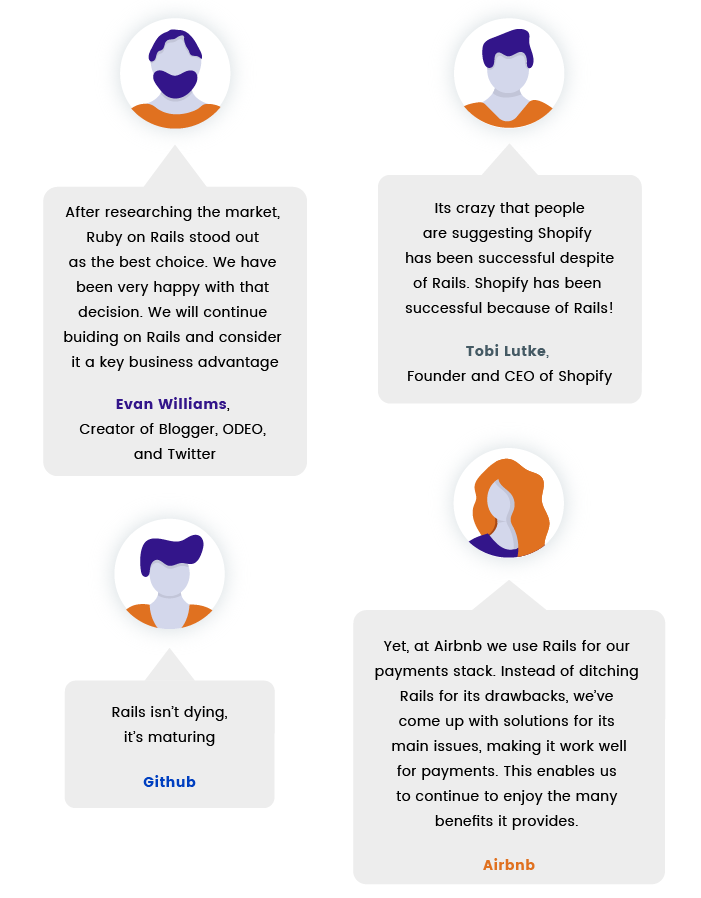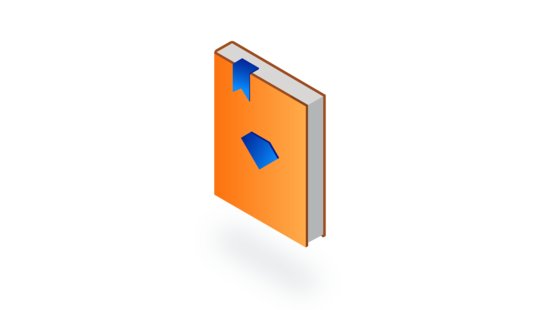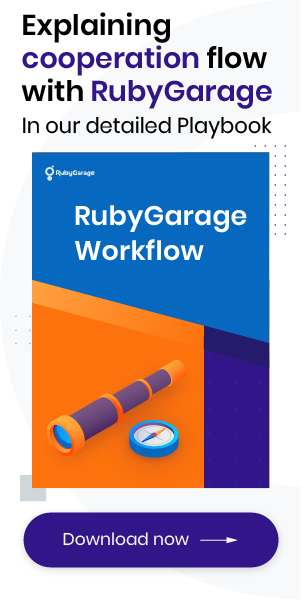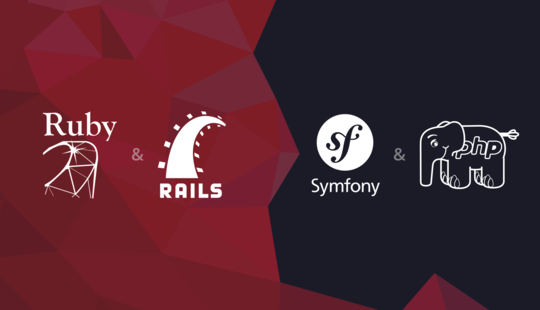-
Product Management
Software Testing
Technology Consulting
-
Multi-Vendor Marketplace
Online StoreCreate an online store with unique design and features at minimal cost using our MarketAge solutionCustom MarketplaceGet a unique, scalable, and cost-effective online marketplace with minimum time to marketTelemedicine SoftwareGet a cost-efficient, HIPAA-compliant telemedicine solution tailored to your facility's requirementsChat AppGet a customizable chat solution to connect users across multiple apps and platformsCustom Booking SystemImprove your business operations and expand to new markets with our appointment booking solutionVideo ConferencingAdjust our video conferencing solution for your business needsFor EnterpriseScale, automate, and improve business processes in your enterprise with our custom software solutionsFor StartupsTurn your startup ideas into viable, value-driven, and commercially successful software solutions -
-
- Case Studies
- Blog
A Complete Guide to the Ruby Programming World
I hope to see Ruby help every programmer in the world to be productive, and to enjoy programming, and to be happy. That is the primary purpose of Ruby language.
The first stable version of Ruby was released more than 20 years ago in 1996. This makes Ruby a pretty mature programming language, and it remains one of the most popular and widely used languages in the world. The reason is simple: Ruby satisfies the needs of people, not of machines.
In a 2018 HackerRank study, nearly 40,000 developers were asked about the programming languages they prefer to use in their work and which languages they’re going to study in future. According to this study, Ruby ranks fifth among the most popular programming languages for developers.

The relevance of the Ruby language is also confirmed by the results of other studies:
- Ruby is one of the 15 most popular programming languages according to the RedMonk rating and the TIOBE index.
- Ruby is in 13th position on the Stack Overflow developer community.
- GitHub states that Ruby was one of the top five languages according to the number of pull requests in 2017.

In this article, we introduce you to the Ruby world and go over the major reasons why Ruby is so great for both developers and product owners.
Key principles of Ruby culture
#1 Created for developers
First of all, let’s talk about the advantages of Ruby for software developers.
Ruby supports metaprogramming
Metaprogramming is a technique that allows developers to write code in Ruby that writes other code. Applied with various tricks and tools such as ghost methods, introspection, and class macros, metaprogramming not only gives developers flexibility but also helps them save time and write less code (though testing this code may eventually be more difficult).
Ruby is fast to write
Although Ruby may not be the fastest language in terms of running and processing requests, statistics show that the speed of writing code and, therefore, of developing software products with Ruby is 30 to 40 percent faster than with other programming languages. Our team can confirm these numbers based on our own ample experience.
Everything is an object
When you create an object from a class, it can get its own class known as a singleton. For this reason, each object in Ruby can indeed be unique and have its own methods and properties. Other programming languages often have unnecessary and annoying constraints in this respect.
#2 Focused on code quality
Code quality is crucial for any application − nobody wants to use laggy software riddled with bugs. Ruby allows developers to ensure the highest code quality standards. What makes Ruby so special? It’s all about syntax. Ruby code is intuitive, so it takes less effort to write, read, and maintain.
Code quality largely depends on compliance with common standards and best practices. In the Ruby ecosystem, the norms and standards of code structure are approved by a global community of developers and fixed in the Ruby style guide.
Also, the Ruby ecosystem is perfectly tooled for testing, which is an integral part of producing clean code. The Ruby community has created plenty of testing and test automation frameworks and tools that allow developers to easily write tests and run them against their code bases to ensure impeccable quality. Here are some of the testing tools we use at RubyGarage:
- Minitest − Ruby’s standard library that provides a complete suite of testing tools
- RSpec − a behavior-driven development framework for validating the development of applications
- Capybara − simulates a browser and users’ interactions with an application
Ruby’s focus on quality brings a lot of benefits for both businesses and developers. Let’s name some of them.
- Maintainability. Ruby’s intuitiveness makes it easy for developers to understand how an application works so they can quickly pick up an existing project.
- Simple debugging. Since Ruby code is easy to understand, developers can track down and fix bugs and errors quickly.
- Great application performance. The clean code ensures a smooth and trouble-free performance, delivering a pleasant customer experience.
#3 Maintained by the community
People tend to unite around great things, so no wonder Ruby has a huge, active, and motivated community.
In fact, the community is a centerpiece of Ruby’s success and popularity: not only does it lend a helping hand to new developers through numerous courses, books, and discussion platforms, it also maintains Ruby and moves it forward by constantly creating new frameworks, tools, and libraries for the benefit of developers and, ultimately, end users.
The best example is Ruby on Rails, the most popular framework for Ruby that has helped scores of projects get off the ground and achieve success. Ruby on Rails relies on conventions aimed at writing less code and avoiding repetition. Moreover, this framework is an open source (read: free), which means using it costs nothing at all.
The Ruby community has crafted lots of open source tools that help developers easily create fully functional, secure, and cost-effective applications from scratch. Do you need to build an online store? Easy as pie: Ruby on Rails offers open source ecommerce platforms. How about a CMS for managing content on your website? No problem: there are lots of open source content management systems for Ruby on Rails. Think of a function you need to implement in a web application, and the Ruby community is likely to provide a tool to help you. This is an awesome advantage of Ruby as a programming language and Rails as a framework.
Also, it’s impossible to speak about the Ruby language without mentioning gems − libraries that handle a variety of typical development tasks. For example, gems help Ruby programmers implement authentication, detect vulnerabilities, root out bugs, manage payments, and do many other things. The Ruby community has developed over 140,000 gems that facilitate programming and help developers create amazing applications with Ruby.
If you want to know how our team benefits from open source libraries, take a look at this list of the most popular gems we use at RubyGarage.
Ruby devotees, also known as Rubyists, keep contributing to the Ruby ecosystem around the clock, updating old tools and gems and releasing new ones. The community does a terrific job keeping Ruby fit for building applications of different complexities and for various business purposes.
#4 Vibrant culture
Ruby’s active community has created a unique, vibrant culture around this programming language − a culture of fun that results in delivering quality software products; a culture that motivates developers to share their experiences with each other and keep learning new things all the time.
Rubyists strongly believe that success lies in cooperation and joint effort, so they organize and participate in conferences, events, meetups, and webinars. Here are just some of the annual international Ruby conferences:
- RailsConf − the world’s largest gathering of Ruby on Rails developers, enthusiasts, and businesses
- RubyKaigi − a major conference that takes places in Japan, Ruby’s native land
- RubyC − a European conference devoted to the Ruby programming language, the Rails framework, and related technologies
- RubyConf − a conference that brings together the leading minds and enthusiasts in the world of Ruby
The Ruby culture is inclusive, always welcoming new people who want to become part of the community. No matter your location or gender, you’ll find a place in the world of Ruby. Rails Girls, for example, promotes the values of Ruby among women and incentivizes them to learn this technology to build awesome projects.
For Ruby developers and enthusiasts like us, Ruby isn’t just a tool; it’s a lifestyle. No wonder Rubyists are so devoted to their language. Despite all the rumors about the so-called “death” of Ruby, it was, is, and (hopefully) will remain one of the top programming languages in the world.
Ruby on Rails
Ruby on Rails is sometimes unfairly called an outdated and slow framework. RubyGarage doesn’t agree with this opinion. Recent versions of Rails, including version 5, support a modern frontend and offer reliable tools that are convenient and pleasant to work with.
Products and platforms built with Rails
According to Built With, there are more than one million web platforms built with Ruby on Rails. Probably you’ve heard of at least one of them:

Let's look at what famous platforms think about using Ruby on Rails in their projects.

What types of businesses can benefit from Ruby on Rails?
Most of the companies and platforms listed above began their path to success as startups and today are huge businesses. Ruby on Rails is a fairly startup-friendly framework due to its flexibility, development speed, scalability, and code quality. So a combination of the Ruby programming language and the Ruby on Rails framework is an optimal choice for startups.
But over the course of time, the Rails community has proven that Rails is an enterprise-friendly framework as well. In fact, Ruby on Rails copes with lots of enterprise demands.
- Reliability. At least during the last decade, Rails has proven its reliability and demonstrated opportunities for consistently scaling any product. Therefore, it’s fair to consider this framework a solid basis for successful platforms of any size, from startups and growing companies to large enterprises.
- Performance. The level of Ruby on Rails performance (accounting for speed, efficiency, and software resources required) is high enough for enterprise use. In fact, this is nothing new, as the Rails framework has demonstrated rather high performance since Ruby 1.9 and Rails 3 were released, and Rails continues to show even higher success rates.
- Integrations. Thanks to the Rails community and the activities of IT leaders (including Apple and Microsoft), integrating enterprise software with Ruby on Rails is much faster and more efficient today than it was five to seven years ago. In addition, Ruby can integrate and coexist effectively with Java, .NET, and other platforms.
- Digital transformation. Ruby is a perfect solution to current issues of enterprise digitalization. It offers ready-made solutions for any large business needs, from automating operational processes to improving custom order processing, establishing employee management processes, handling financial resources, and managing all types of data that companies collect and process.
A further benefit of this technology is the companies that specialize in it. Unlike classic outsourcing companies, most Ruby on Rails outsourcing companies have a boutique culture. They focus on solving specific customer tasks and working with a product as if it were their own. The culture of Ruby on Rails companies, from design to technical consulting, is based on a service-oriented approach.
How to learn Ruby on Rails
Ruby on Rails is a full-stack framework that covers both frontend and backend development. As frontend development has a lower barrier to entry, it’s preferable to start learning frontend basics such as HTML, CSS, and JavaScript. After that, you can start learning the backend, where the Ruby language is essential (and the easiest part to start with). After getting to know Ruby, you can continue with Rails.
Check out our comprehensive guide to learning Ruby on Rails where you can find a roadmap for boosting your skills from complete beginner to senior developer.
Ruby restrictions
Ruby has a lot of benefits for solving the most complex issues, but it’s not perfect. Here are some slight drawbacks you may face with Ruby:
- Performance. Despite the high speed of development, Ruby doesn’t always demonstrate the highest performance. On the one hand, Ruby runs many operations for the developer’s convenience, including managing memory for dynamic typing. On the other hand, the volume of such operations affects performance. This isn’t extremely problematic, but it could be better.
- Multithreading. Ruby supports multithreading, but the algorithm isn’t implemented perfectly, which can lead to performance issues. In addition, Ruby’s multithreading algorithm is rather unpredictable: it can switch from one thread to another at any time. This affects the result of data processing and the speed of the entire process. The Ruby community is currently working to resolve this issue.
- Rails domination. Another restriction of Ruby concerns its frameworks. Rails is a good solution, but its popularity weakens and slows down the development of other frameworks such as Sinatra and Hanami.
Wrapping up
In summary, here are some key thoughts:
- Ruby takes up the challenge both from direct competitors such as Python and PHP and from new languages like Go and Crystal that are gaining popularity.
- Ruby has some restrictions, such as with performance and multithreading, that need to be solved.
- The Ruby ecosystem offers a lot of tools to implement a full range of functionality, including for mobile development, machine learning, robotics, and artificial intelligence.
- The Rails ecosystem powers more than one million web platforms and remains the best solution for startups.
- Ruby is an extremely beginner-friendly language. There are lots of useful resources for learning and advancing in this language both for newcomers and for experienced developers.
We’ve briefly mentioned why we love Ruby as software developers and how Ruby brings lots of advantages to businesses as well. Ruby has revolutionized the IT industry, allowing companies to get their projects up and running quickly and cost-effectively. To stay updated on the most recent trends in software development and to find out what stunning projects Ruby helps to build, subscribe to our newsletter.










